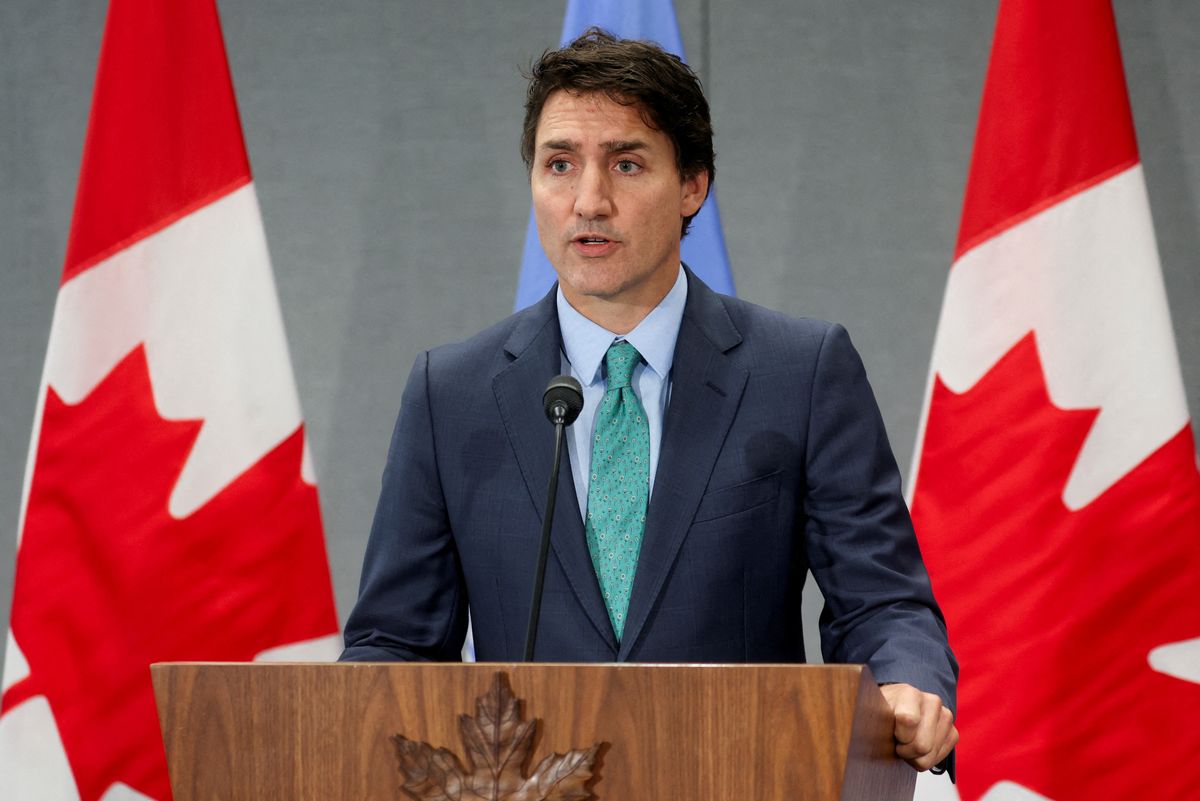Canada and India tensions – what’s going on between the two nations?
Canada and India have major economic ties, but tensions between the two have exploded this week.

A few minutes every morning is all you need.
Stay up to date on the world's Headlines and Human Stories. It's fun, it's factual, it's fluff-free.
The backstory: Canada and India have major economic ties. To put it simply, they do a lot of business together. Canada ranks as India's 17th largest foreign investor, with Canadian investors contributing billions to Indian financial markets. Canadian pension funds have also invested heavily in different Indian projects like renewable energy, infrastructure and banks.
Last year, Canada shipped a significant amount of goods to India, like fossil fuels (worth almost US$1 billion), fertilizers (around US$748 million) and wood pulp (about US$384 million). Canada also imported things from India, like smartphones and railway cars.
Canada is also a popular destination for international students, with many coming from India. In fact, India has been Canada's biggest source of international students since 2018, with its numbers shooting up by over 40% in 2022 to almost 320,000.
More recently: In June, Sikh leader Hardeep Singh Nijjar was murdered outside a Sikh temple in British Columbia. Nijjar was known for advocating Khalistan, a separate Sikh homeland, and he had been vocal about human rights issues in India. On the other hand, New Delhi had officially declared him a terrorist in 2020.
Canada is home to the largest Sikh population after India, with estimates of about 770,000 people identifying as Sikh. That’s just over 2% of the country’s population. But India has expressed concerns that Canada is not doing enough about “radical” Khalistan supporters. The nation has urged Canada to crack down on what it sees as “anti-India” groups in its territory.
For more context, there was a Sikh insurgency in India in the 70s and 80s. India’s Congress Party eventually crushed the rebellion, but thousands of people were killed in the unrest. Sikh bodyguards were also convicted of the 1984 assassination of then-Prime Minister Indira Gandhi. The Khalistan movement is now illegal in India and considered a national security threat.
The development: Tensions between the two countries escalated this week when Canadian Prime Minister Justin Trudeau said it was investigating allegations of India’s in Nijjar's murder. This led to both countries expelling each other’s diplomats, and Canada launching an investigation. Canada has not disclosed the specific reasons for its suspicions, only saying it has “credible allegations.” The ordeal has also stalled talks on a potential bilateral trade deal.
India has firmly denied any involvement in the murder, labeling the accusations as "absurd and motivated." It says that Canada is harboring Khalistani terrorists and extremists, which it believes threaten India's sovereignty. On Thursday, India also temporarily suspended new visas for Canadians, citing "security threats" to its consulate staff in Canada. The nation also urged Canada to reduce its diplomatic presence within the country.
Canada’s move has sparked international concerns, including expressions of worry from countries like the UK, the US and Australia. The US sees India as an important partner in its goals of competing with China, and the UK is currently seeking a free trade deal with India.
It's worth noting that Canadian authorities have not made any arrests in connection with the murder of Sikh leader Hardeep Singh Nijjar, but it’s actively investigating three suspects.
Key comments:
“Any involvement of a foreign government in the killing of a Canadian citizen on Canadian soil is an unacceptable violation of our sovereignty,” said Canadian Prime Minister Justin Trudeau
“We call upon the government of India to take seriously this matter and to work with us to shed full transparency and ensure accountability and justice in this matter,” Trudeau said.
“No specific information has been shared by Canada on this case,” said Arindam Bagchi, the official spokesperson for India’s Ministry of External Affairs. “We have conveyed to the Canadian side, made it clear to them that we are willing to look at any specific information provided to us, but so far we haven’t received any specific information.”
“They are promoting secessionism and inciting violence against Indian diplomats, damaging diplomatic premises and threatening the Indian community in Canada and their places of worship,” said India’s government in a statement, referring to Sikh separatists.
“Such unsubstantiated allegations seek to shift the focus from Khalistani terrorists and extremists, who have been provided shelter in Canada and continue to threaten India’s sovereignty and territorial integrity,” said the India foreign ministry’s statement. “The inaction of the Canadian Government on this matter has been a long-standing and continuing concern.”
“These are serious allegations. It is right that the Canadian authorities should be looking into them,” said British Prime Minister Rishi Sunak’s spokesman Max Blain.
“We are deeply concerned about the allegations referenced by Prime Minister Trudeau earlier today,” said US National Security Council spokesperson Adrienne Watson in a statement.




Comments ()